‘Everywhere you go it’s buzzing and electric’ – Bloomberg
What do have the Portuguese António Guterres (Secretary-General United Nations), the Yemeni Tawakkol Karman (Nobel Peace Prize laureate), the American Al Gore (former vice-president), the Chinese Meng Hongwei (president of Interpol), the British Suzy Menkes (editor Vogue), the French Francois Hollande (former president), the Russian Garry Kasparov (former world chess champion), the Brazilian Julio Cesar (goalkeeper), the Irish Kenny Jacobs (CMO Ryanair), the Greek George Papandreou (former prime-minister) and the Saudi robot Sophia in common?
 They are all speakers on the Web Summit 2017 (November 6-9), Europe’s largest technology and digital culture conference to be held in the Altice/MEO Arena in Lisbon ( http://www.websummit.net)
They are all speakers on the Web Summit 2017 (November 6-9), Europe’s largest technology and digital culture conference to be held in the Altice/MEO Arena in Lisbon ( http://www.websummit.net)
In 2016 – when the summit was held in Lisbon for the first time – almost 53,000 people attended, including 20,000 companies and over 2000 journalists from 166 countries (https://lusolobo.com/silicon )
 This year the event will be even bigger. Networking and pitches (selling ideas ) are keywords, getting to know each other and looking for investment.
This year the event will be even bigger. Networking and pitches (selling ideas ) are keywords, getting to know each other and looking for investment.
Not only at the conference itself but also at the ‘night summit’ downtown.
But what has actually been the result of Web Summit 2016? Which international companies could be enticed to settle in the country? Which impulses were given to attract startups and young people, that are badly needed for the future of the local economy and the demographic equilibration in an aging population?
![]() It is estimated that the 2016 Summit injected 200 million euros into the national economy.
It is estimated that the 2016 Summit injected 200 million euros into the national economy.
However, half of it was absorbed by the local hotel industry and suppliers, directly linked to the event.
So, why another summit in Portugal? To promote more tourism? To sell the few digital companies to international investors, losing, even more, local know-how? Or serves the summit as a platform for people, who love to take selfies and posts on social media, saying ‘look at me how I succeeded to enter a place, where a ticket costs nearly € 1000 and industrial hotshots tell us how to gather fortunes?’
Ana Lehman, the Secretary of State for Industry, emphasizes the importance of the event and hopes the summit will remain in Lisbon for some years to come. She disagrees with the criticism. “You have to go there and see for yourself. We know dozens of companies that had contracts closed during the summit.”
BOM FIM DE SEMANA (photo’s Observador/Sapo)

 According to the Consumer Defence Association (DECO), two-thirds of the Portuguese schoolchildren carry backpacks, that are too heavy.
According to the Consumer Defence Association (DECO), two-thirds of the Portuguese schoolchildren carry backpacks, that are too heavy. The parliamentarians moreover, propose a national awareness campaign to better monitor the weight of schoolbags by teachers, parents and students and the Directorate-General for Health will be asked to perform a study on the effect of the weight of the schoolbags on children’s health.
The parliamentarians moreover, propose a national awareness campaign to better monitor the weight of schoolbags by teachers, parents and students and the Directorate-General for Health will be asked to perform a study on the effect of the weight of the schoolbags on children’s health.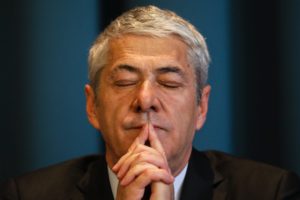 On November 21st at 10 PM, 2014 José Sócrates – ex-prime minister and former leader of the Socialist Party – was arrested at Lisbon’s airport, after flying home from Paris, under suspicion of money laundering, corruption, forgery and fiscal fraud.
On November 21st at 10 PM, 2014 José Sócrates – ex-prime minister and former leader of the Socialist Party – was arrested at Lisbon’s airport, after flying home from Paris, under suspicion of money laundering, corruption, forgery and fiscal fraud. It’s for the first time in the history of Portugal, that a former prime minister is accused of corruption during the execution of his function as head of state. But that’s not all. Operation Marqués also incriminates ex-CEO’s from big government agencies like Portugal Telecom and the state-owned bank Caixa Geral dos Depositos.
It’s for the first time in the history of Portugal, that a former prime minister is accused of corruption during the execution of his function as head of state. But that’s not all. Operation Marqués also incriminates ex-CEO’s from big government agencies like Portugal Telecom and the state-owned bank Caixa Geral dos Depositos.
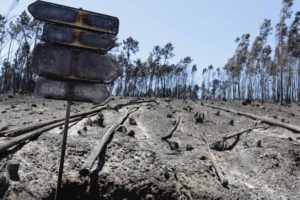 Large parts of the countries interior look spooky these days with charred trees and incinerated road signs.
Large parts of the countries interior look spooky these days with charred trees and incinerated road signs.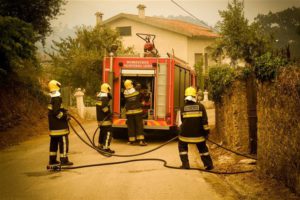 “Climate change causes many problems, but if I had to name the one that worries me most, it would be the increase in the number of wildfires – especially this summer as the fires caused many deaths in our country”, says a boy of the group of children – aged between 6 and 14 – from Leiria, seeking crowdfunding to sue 47 European countries for their failure to tackle climate change, threatening their right to life.
“Climate change causes many problems, but if I had to name the one that worries me most, it would be the increase in the number of wildfires – especially this summer as the fires caused many deaths in our country”, says a boy of the group of children – aged between 6 and 14 – from Leiria, seeking crowdfunding to sue 47 European countries for their failure to tackle climate change, threatening their right to life. “Tragedies like this are becoming the new norm because governments are failing to make the necessary cuts to their greenhouse emissions”, according to a spokesman from GLAN.
“Tragedies like this are becoming the new norm because governments are failing to make the necessary cuts to their greenhouse emissions”, according to a spokesman from GLAN.
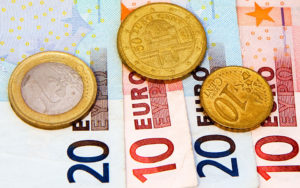 ‘To think that nowadays in our country one million people – that is 10% of the population – regular have to skip meals due to financial problems is a shame’, says Carla Lopes, a nutritionist at the Public Health Institute of the University of Porto.
‘To think that nowadays in our country one million people – that is 10% of the population – regular have to skip meals due to financial problems is a shame’, says Carla Lopes, a nutritionist at the Public Health Institute of the University of Porto.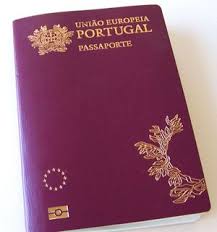 For wealthy people, there is a far much easier way. Portugal’s ‘golden residence permit’ – visto gold – requires an investment of 500,000 euros in property in exchange for permanent residency and visa-free travel through Europe’s Schengen area.
For wealthy people, there is a far much easier way. Portugal’s ‘golden residence permit’ – visto gold – requires an investment of 500,000 euros in property in exchange for permanent residency and visa-free travel through Europe’s Schengen area.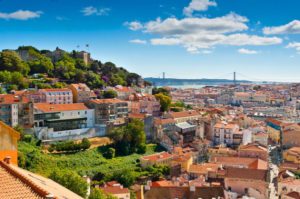 One of them is Otávio Azevedo, former president of Brazil’s second-largest construction company, Andrade Gutierrez. He received an 18-year sentence last year, after admitting a string of corruption offenses. Two years before his arrest he bought a € 1.4 million property in Lisbon and subsequently applied for a golden visa in 2014.
One of them is Otávio Azevedo, former president of Brazil’s second-largest construction company, Andrade Gutierrez. He received an 18-year sentence last year, after admitting a string of corruption offenses. Two years before his arrest he bought a € 1.4 million property in Lisbon and subsequently applied for a golden visa in 2014. Mamadou Ba is born in Senegal and has the Portuguese nationality. He is graduated, has a steady job at the Parliament, and speaks with a slight African accent. When he is calling for an apartment in Lisbon’s Parque das Nações neighborhood, he gets an appointment 2 days later. Although the tenant promises him to send an SMS with additional information, he never does. If shortly thereafter a journalist of the newspaper Público– with a Portuguese name and a Lisbon accent – calls the same tenant, he immediately gets the necessary information by phone and an appointment for the next day. In only two out of five phone calls, Mamadou and the journalist were treated the same way.
Mamadou Ba is born in Senegal and has the Portuguese nationality. He is graduated, has a steady job at the Parliament, and speaks with a slight African accent. When he is calling for an apartment in Lisbon’s Parque das Nações neighborhood, he gets an appointment 2 days later. Although the tenant promises him to send an SMS with additional information, he never does. If shortly thereafter a journalist of the newspaper Público– with a Portuguese name and a Lisbon accent – calls the same tenant, he immediately gets the necessary information by phone and an appointment for the next day. In only two out of five phone calls, Mamadou and the journalist were treated the same way. ‘It isn’t true that social class eliminates racism.
‘It isn’t true that social class eliminates racism.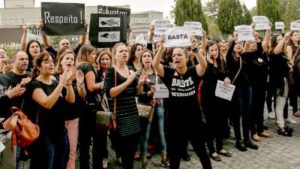 ‘We are still counting, but everything indicates, that an overwhelming majority – over 90% – of the nurses are supporting this action’, says José de Azevedo, leader of the SEP on the first day of the strike.
‘We are still counting, but everything indicates, that an overwhelming majority – over 90% – of the nurses are supporting this action’, says José de Azevedo, leader of the SEP on the first day of the strike. The number of qualified nurses in Portugal is – with 1 in 200 inhabitants – one of the lowest in the EU.
The number of qualified nurses in Portugal is – with 1 in 200 inhabitants – one of the lowest in the EU.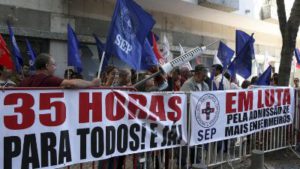 Apart from low wages, nurses also criticize the lack of career perspectives – that was canceled as well in 2009 – and demand the reintroduction of specializations, together with a gradual wage increase of 2400 euros per month over 3 years.
Apart from low wages, nurses also criticize the lack of career perspectives – that was canceled as well in 2009 – and demand the reintroduction of specializations, together with a gradual wage increase of 2400 euros per month over 3 years.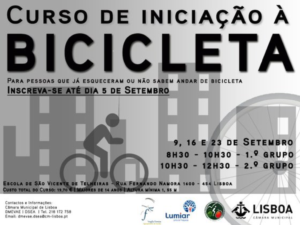 Cycling is a good alternative to using the car. It not only reduces traffic congestion but also benefits the environment and health. Regular cycling ( 45 km a week) cuts the risk of death from any cause by 40% and the incidence of heart disease and cancer by 45%.
Cycling is a good alternative to using the car. It not only reduces traffic congestion but also benefits the environment and health. Regular cycling ( 45 km a week) cuts the risk of death from any cause by 40% and the incidence of heart disease and cancer by 45%.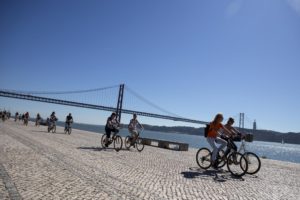 This number is to be extended to 1400 bikes – 950 electric ones to cope with the hilly parts –being installed in the flatter parts of Lisbon – the Plateau area, the touristic Baixa and along the waterfront of the Tagus river.
This number is to be extended to 1400 bikes – 950 electric ones to cope with the hilly parts –being installed in the flatter parts of Lisbon – the Plateau area, the touristic Baixa and along the waterfront of the Tagus river.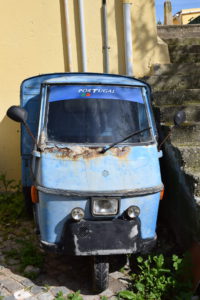 These friends – that now had become creditors – demanded strict measures, that were enthusiastically implemented by the country’s then conservative government. It started raining austerities for many years and the people suffered.
These friends – that now had become creditors – demanded strict measures, that were enthusiastically implemented by the country’s then conservative government. It started raining austerities for many years and the people suffered.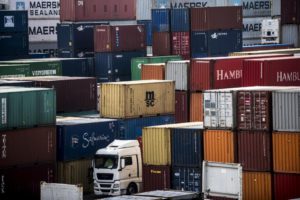 And it worked. Two years after taking power the government is showing an economic growth of 2.5% – the strongest since the beginning of the recession – and a reduction of the deficit by half, lower than ever. Meanwhile, foreign investment jumped 13%, unemployment dropped below 10% and 17 billion (65%) of the loan from the IMF is repaid.
And it worked. Two years after taking power the government is showing an economic growth of 2.5% – the strongest since the beginning of the recession – and a reduction of the deficit by half, lower than ever. Meanwhile, foreign investment jumped 13%, unemployment dropped below 10% and 17 billion (65%) of the loan from the IMF is repaid.